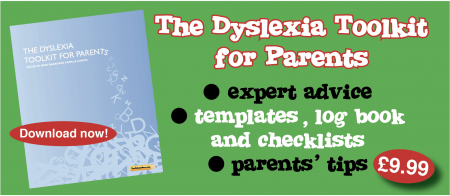Important update from TheSchoolRun
For the past 13 years, TheSchoolRun has been run by a small team of mums working from home, dedicated to providing quality educational resources to primary school parents. Unfortunately, rising supplier costs and falling revenue have made it impossible for us to continue operating, and we’ve had to make the difficult decision to close. The good news: We’ve arranged for another educational provider to take over many of our resources. These will be hosted on a new portal, where the content will be updated and expanded to support your child’s learning.
What this means for subscribers:
- Your subscription is still active, and for now, you can keep using the website as normal — just log in with your usual details to access all our articles and resources*.
- In a few months, all resources will move to the new portal. You’ll continue to have access there until your subscription ends. We’ll send you full details nearer the time.
- As a thank you for your support, we’ll also be sending you 16 primary school eBooks (worth £108.84) to download and keep.
A few changes to be aware of:
- The Learning Journey weekly email has ended, but your child’s plan will still be updated on your dashboard each Monday. Just log in to see the recommended worksheets.
- The 11+ weekly emails have now ended. We sent you all the remaining emails in the series at the end of March — please check your inbox (and spam folder) if you haven’t seen them. You can also follow the full programme here: 11+ Learning Journey.
If you have any questions, please contact us at [email protected]. Thank you for being part of our journey it’s been a privilege to support your family’s learning.
*If you need to reset your password, it will still work as usual. Please check your spam folder if the reset email doesn’t appear in your inbox.
Critical steps: empowering dyslexic readers

Give them the right kind of praise
Your child needs to know that they’re safe to make mistakes but also will be praised for making progress. Don’t praise unconditionally, but do acknowledge the real hard work which has taken place.
Allow self-correction
Don’t jump in with the right answers until your child has exhausted all the possibilities. This will inhibit their confidence in their own problem-solving abilities. If they are really struggling, help them gently by suggesting words to enable continuity, but do this as little as possible.
Make the reading experience a joint one
Don’t just read to your child or have them read to you; try taking it in turns to read a page each. That way the process will seem less daunting and you will be seen to be supporting them all the way.
Ask questions about what’s just been read and praise accordingly
This will reinforce your child’s understanding and also make it clear that they are progressing with the book. Do this every couple of paragraphs or whenever there's a significant plot development.
Make it clear that they have made progress
At the end of three chapters, for example, tell your child how far they’ve come. Flick through the pages and say, “Look how much you’ve read!”. Something as simple as this will let them see and be proud of their own progress.
Develop and encourage their confidence in other areas
If your child is really good at art or sport, remind them of this and let them know how proficient you think they are. This will have an impact on their general confidence and prevent the reading issues from pervading the rest of their life.
Get used to using a dictionary at home
Impress upon your child the idea that nobody (not even you!) can ever know the meaning of all the words in the dictionary and that using it can be fun. Making a dictionary part of everyday reading normalises the idea that we are all learning new words every day, and might need to look them up – even as adults.
Work to time limits rather than chapter limits
Tell your child you’ll read until 5pm rather than “until we finish this chapter”. That way, if the time is up and you haven’t finished, there is no sense of failure. It’s the clock’s fault!
Encourage your child to read along with an audio book
Listening to an audio book will make the words easier to read and will reinforce them at the same time. Don’t put a limit on how often they skip the track back to hear certain words again.
Encourage your child to keep a diary
Writing is always more fun if it’s about yourself. Encouraging your child to write about their life and feelings in a diary, even if it’s just a ‘What I did at the weekend’ list, will get them into the habit of writing and they might really enjoy regular time to express themselves and note their thoughts and plans.
Play silly games
Have a race with your child to see who can read a (pre-agreed) sentence the fastest. The loser gets to make a cup of tea! Word games and challenges help children associate reading with fun.









